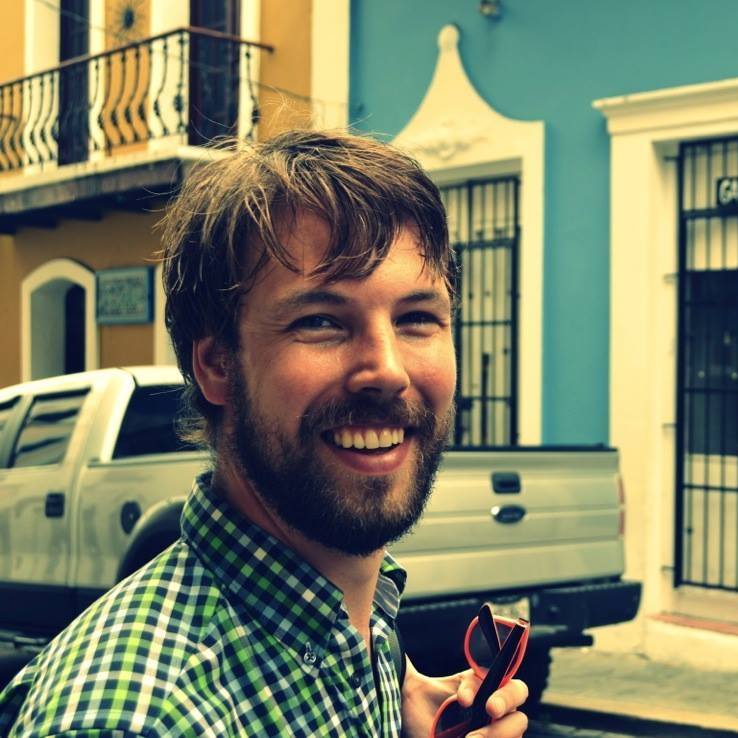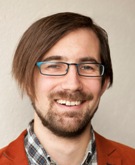Team members
Prof. dr. Barbara Vis
.JPG)
Barbara Vis is directing the HIGH-RISK POLITICS project, for which she received a Vidi grant from the Netherlands Organisation for Scientific Research (NWO), and which runs
from 2012 until 2017. Per 1 September 2017, Barbara is Full Professor of Politics and Governance at the Utrecht University School of
Governance.
Before joining Utrecht University, Barbara was Full Professor in Political Decision-Making on a
Fenna Diemer Lindeboom Chair
at the Department of Political Science of the Vrije Universiteit Amsterdam. She teaches, or has taught, courses
on among other topics comparative politics, decision making, configurational comparative methods (especially QCA) and political economy.
Barbara studied Economics and Political Science at the University of Amsterdam and received her PhD from Vrije Universiteit Amsterdam (
cum laude, with distinction).
From 2009-2012, most of her research took place in the context of a Veni-project entitled 'Politics of Risk-Taking', funded by a Veni grant from NWO.
Barbara is a board member of the
Netherlands Institute of
Government, of
Compasss, a network of 1,800+ scholars and practioners
interested in theoretical, methodological and practical advancements in systematic comparative case research, and a former board member of the Dutch Organisation for Political Science
(
NKWP (2009-2015)). She is also senior associate editor of the
Oxford Research Encyclopedia in
Political Decision Making.
For more information on Barbara's work, please check out her personal website at
www.barbaravis.nl.
Dieuwertje Kuijpers, MA

Dieuwertje Kuijpers studied European Union Studies, and Italian Language and Culture at Leiden University. For one year, she studied Philosophy and Medievalism at
the University of Udine, in Northern Italy. Her MA-thesis concentrated on international military co-operation and used the Balkan Wars as a blueprint to
compare the effectiveness of NATO and EU-led military operations. As a PhD-candidate for the 'High Risk Politics'-project, her objective is to assess empirically -
by taking a closer look at military interventions - why some governments take decisions involving substantial electoral risks while others do not.
She is also co-founder of and regular contributor to a Dutch International Relations and Defence-blog
www.stukjeduiding.com,
and secretary of the national Defence Committee of the Dutch liberal party (VVD).
Dr. Mariken van der Velden

Mariken van der Velden studied Political Science (BA) and the Research Master Social Science - specialized in comparative politics and
quantitative research methods - at the University of Amsterdam. Her MA-thesis concentrated on the conditions under which voters sanction
coalition-governments for welfare retrenchment. As a PhD-candidate for the 'High Risk Politics' project, her objective is to explain
why political parties change their policy position and risk turning their voters away. The degree to which political actors take such
electoral risks varies substantially. Existing explanations are unable to explain this variation and this project aims to contribute to this scholarly
debate using prospect theory.
Per 1 January 2017, Mariken is working as a postdoc at the
Chair of Policy Analysis, directed by prof. dr. Fabrizio Gilardi, at the University of Zurich. She will publicly defend her PhD thesis on 20 December 2017.
Dr. Sjoerd Stolwijk

Sjoerd Stolwijk studied Political Science (MA) at Leiden University, and Policy, Communication and Organization (BCO, MSc) at the Vrije Universiteit Amsterdam.
He defended his PhD dissertation in Political Communication (University of Amsterdam) in February 2017. In his dissertation, Sjoerd studied the effects of
opinion polls on media content and voters. In his work, Sjoerd is especially interested in the influence of emotions and time on (political) decision making processes. His work has appeared in
International Journal of Public Opinion
Research, and in
Mobilization: An International Quarterly. Starting as a postdoc in the HIGH-RISK POLITICS project from January 2017 onwards, he will investigate how politicians deal
with complexity when facing risky choices. Sjoerd will also aim to propose a theoretical framework to integrate the various findings of the HIGH-RISK POLITICS project, and organize a concluding
conference to share its insights.
Dr. Gijs Schumacher

Gijs Schumacher is an assistant professor at the University of Amsterdam. He has been affliated to the HIGH-RISK POLITICS project from the start.
Before his position at the University of Amsterdam, Gijs was an assistant professor at the University of Southern Denmark in Odense and an
affiliated researcher at the Vrije Universiteit Amsterdam. His research
interests are decision-making and institutions and he has published on party organization, elite framing, mass-elite linkages, representation, party change, the
radical right, social democratic parties and welfare policies. His research on intra-party decision-making and representation has been financed by the Danish
Council for Independent Research - via a postdoctoral grant and the Sapere Aude Ung Eliteforsker project (about €360,000).
Gijs work has appeared in
American Journal of Political Science, Journal of Politics, Party Politics, West European Politics, Electoral Studies,
European Political Science Review, Comparative European Politics, Acta Politica
and the
Journal for Artificial Societies and Social Simulation. He is also a co-founder and commentator on
www.stukroodvlees.ml, a Dutch political science blog. His dissertation
"Modernize or Die?" Social Democrats, Welfare State
Retrenchment and the Choice between Office and Policy was awarded with the Jaarprijs Politicologie 2013, a prize for the best dissertation written by a
Dutch or Flemish researcher abroad or a researcher at a Dutch or Belgian university. He is also an alummnus of the University of Amsterdam,
University of Hong Kong and the University of North Carolina at Chapel Hill.
For more information, see
www.gijschumacher.nl.
Prof. dr. Wolfgang Wagner

Wolfgang Wagner is full professor in International Security, Head of Department of the Department of Political Science
and Public Administration, co-director of ACCESS Europe,
and affliated to the HIGH-RISK POLITICS project. He studied Political Science and German literature at the University of Tübingen (Germany) and received his PhD in Political Science from the
University of Frankfurt/Main (Germany) in 2001. Prior to his position at the Vrije Universiteit Amsterdam,
F
from 2002 to 2007, Wolfgang worked at the Peace Research Institute Frankfurt (PRIF) and taught in Frankfurt,
Darmstadt, Mannheim and Konstanz.
Wolfgang's research interests are comparative foreign policy analysis, the interplay between domestic politics and international conflict and the democratic control
of government decisions to use military force. His work has appeared in
Journal of Peace Research,
Armed Forces and Society,
The Nonproliferation Review,
Review of International Studies,
Parliamentary Affairs,
Journal of European Public Policy,
Foreign Policy Analysis,
Journal of International Relations and Development, and
Politische Vierteljahresschrift and Zeitschrift für
Internationale Beziehungen.
For more information, see
Wolfgang Wagner's personal homepage.
Former team member
Dr. Jona Linde

Jona Linde obtained his PhD in behavioral economics from the University of Amsterdam in March 2012 and has worked as a postdoc in the
HIGH-RISK POLITICS project from October 2013 until July 2015. Currently, he is an assistant professor in Economics at
Maastricht University.
Through his research, Jona attempts to broaden the applicability of behavioral economic theories to new types of decisions, in recent years to
education at the TIER institute at the University of Amsterdam and to political decision making in the HIGH-RISK POLITICS project.
With Barbara Vis, he has examined experimentally whether politicians response to risk is different from that of other people.
Jona is a candidate fellow of the Tinbergen Institute and alumnus of the Tinbergen Institute MPhil program (2008).
His research interests include political decision making, behavioral economics and decision making under risk.
For more information, see
Jona Linde’s personal homepage.
 Dieuwertje Kuijpers studied European Union Studies, and Italian Language and Culture at Leiden University. For one year, she studied Philosophy and Medievalism at
the University of Udine, in Northern Italy. Her MA-thesis concentrated on international military co-operation and used the Balkan Wars as a blueprint to
compare the effectiveness of NATO and EU-led military operations. As a PhD-candidate for the 'High Risk Politics'-project, her objective is to assess empirically -
by taking a closer look at military interventions - why some governments take decisions involving substantial electoral risks while others do not.
She is also co-founder of and regular contributor to a Dutch International Relations and Defence-blog www.stukjeduiding.com,
and secretary of the national Defence Committee of the Dutch liberal party (VVD).
Dieuwertje Kuijpers studied European Union Studies, and Italian Language and Culture at Leiden University. For one year, she studied Philosophy and Medievalism at
the University of Udine, in Northern Italy. Her MA-thesis concentrated on international military co-operation and used the Balkan Wars as a blueprint to
compare the effectiveness of NATO and EU-led military operations. As a PhD-candidate for the 'High Risk Politics'-project, her objective is to assess empirically -
by taking a closer look at military interventions - why some governments take decisions involving substantial electoral risks while others do not.
She is also co-founder of and regular contributor to a Dutch International Relations and Defence-blog www.stukjeduiding.com,
and secretary of the national Defence Committee of the Dutch liberal party (VVD).
 Mariken van der Velden studied Political Science (BA) and the Research Master Social Science - specialized in comparative politics and
quantitative research methods - at the University of Amsterdam. Her MA-thesis concentrated on the conditions under which voters sanction
coalition-governments for welfare retrenchment. As a PhD-candidate for the 'High Risk Politics' project, her objective is to explain
why political parties change their policy position and risk turning their voters away. The degree to which political actors take such
electoral risks varies substantially. Existing explanations are unable to explain this variation and this project aims to contribute to this scholarly
debate using prospect theory.
Per 1 January 2017, Mariken is working as a postdoc at the
Chair of Policy Analysis, directed by prof. dr. Fabrizio Gilardi, at the University of Zurich. She will publicly defend her PhD thesis on 20 December 2017.
Mariken van der Velden studied Political Science (BA) and the Research Master Social Science - specialized in comparative politics and
quantitative research methods - at the University of Amsterdam. Her MA-thesis concentrated on the conditions under which voters sanction
coalition-governments for welfare retrenchment. As a PhD-candidate for the 'High Risk Politics' project, her objective is to explain
why political parties change their policy position and risk turning their voters away. The degree to which political actors take such
electoral risks varies substantially. Existing explanations are unable to explain this variation and this project aims to contribute to this scholarly
debate using prospect theory.
Per 1 January 2017, Mariken is working as a postdoc at the
Chair of Policy Analysis, directed by prof. dr. Fabrizio Gilardi, at the University of Zurich. She will publicly defend her PhD thesis on 20 December 2017.
 Sjoerd Stolwijk studied Political Science (MA) at Leiden University, and Policy, Communication and Organization (BCO, MSc) at the Vrije Universiteit Amsterdam.
He defended his PhD dissertation in Political Communication (University of Amsterdam) in February 2017. In his dissertation, Sjoerd studied the effects of
opinion polls on media content and voters. In his work, Sjoerd is especially interested in the influence of emotions and time on (political) decision making processes. His work has appeared in International Journal of Public Opinion
Research, and in Mobilization: An International Quarterly. Starting as a postdoc in the HIGH-RISK POLITICS project from January 2017 onwards, he will investigate how politicians deal
with complexity when facing risky choices. Sjoerd will also aim to propose a theoretical framework to integrate the various findings of the HIGH-RISK POLITICS project, and organize a concluding
conference to share its insights.
Sjoerd Stolwijk studied Political Science (MA) at Leiden University, and Policy, Communication and Organization (BCO, MSc) at the Vrije Universiteit Amsterdam.
He defended his PhD dissertation in Political Communication (University of Amsterdam) in February 2017. In his dissertation, Sjoerd studied the effects of
opinion polls on media content and voters. In his work, Sjoerd is especially interested in the influence of emotions and time on (political) decision making processes. His work has appeared in International Journal of Public Opinion
Research, and in Mobilization: An International Quarterly. Starting as a postdoc in the HIGH-RISK POLITICS project from January 2017 onwards, he will investigate how politicians deal
with complexity when facing risky choices. Sjoerd will also aim to propose a theoretical framework to integrate the various findings of the HIGH-RISK POLITICS project, and organize a concluding
conference to share its insights.
 Gijs Schumacher is an assistant professor at the University of Amsterdam. He has been affliated to the HIGH-RISK POLITICS project from the start.
Before his position at the University of Amsterdam, Gijs was an assistant professor at the University of Southern Denmark in Odense and an
affiliated researcher at the Vrije Universiteit Amsterdam. His research
interests are decision-making and institutions and he has published on party organization, elite framing, mass-elite linkages, representation, party change, the
radical right, social democratic parties and welfare policies. His research on intra-party decision-making and representation has been financed by the Danish
Council for Independent Research - via a postdoctoral grant and the Sapere Aude Ung Eliteforsker project (about €360,000).
Gijs work has appeared in American Journal of Political Science, Journal of Politics, Party Politics, West European Politics, Electoral Studies,
European Political Science Review, Comparative European Politics, Acta Politica
and the Journal for Artificial Societies and Social Simulation. He is also a co-founder and commentator on
www.stukroodvlees.ml, a Dutch political science blog. His dissertation "Modernize or Die?" Social Democrats, Welfare State
Retrenchment and the Choice between Office and Policy was awarded with the Jaarprijs Politicologie 2013, a prize for the best dissertation written by a
Dutch or Flemish researcher abroad or a researcher at a Dutch or Belgian university. He is also an alummnus of the University of Amsterdam,
University of Hong Kong and the University of North Carolina at Chapel Hill.
For more information, see www.gijschumacher.nl.
Gijs Schumacher is an assistant professor at the University of Amsterdam. He has been affliated to the HIGH-RISK POLITICS project from the start.
Before his position at the University of Amsterdam, Gijs was an assistant professor at the University of Southern Denmark in Odense and an
affiliated researcher at the Vrije Universiteit Amsterdam. His research
interests are decision-making and institutions and he has published on party organization, elite framing, mass-elite linkages, representation, party change, the
radical right, social democratic parties and welfare policies. His research on intra-party decision-making and representation has been financed by the Danish
Council for Independent Research - via a postdoctoral grant and the Sapere Aude Ung Eliteforsker project (about €360,000).
Gijs work has appeared in American Journal of Political Science, Journal of Politics, Party Politics, West European Politics, Electoral Studies,
European Political Science Review, Comparative European Politics, Acta Politica
and the Journal for Artificial Societies and Social Simulation. He is also a co-founder and commentator on
www.stukroodvlees.ml, a Dutch political science blog. His dissertation "Modernize or Die?" Social Democrats, Welfare State
Retrenchment and the Choice between Office and Policy was awarded with the Jaarprijs Politicologie 2013, a prize for the best dissertation written by a
Dutch or Flemish researcher abroad or a researcher at a Dutch or Belgian university. He is also an alummnus of the University of Amsterdam,
University of Hong Kong and the University of North Carolina at Chapel Hill.
For more information, see www.gijschumacher.nl.
 Wolfgang Wagner is full professor in International Security, Head of Department of the Department of Political Science
and Public Administration, co-director of ACCESS Europe,
and affliated to the HIGH-RISK POLITICS project. He studied Political Science and German literature at the University of Tübingen (Germany) and received his PhD in Political Science from the
University of Frankfurt/Main (Germany) in 2001. Prior to his position at the Vrije Universiteit Amsterdam,
F
from 2002 to 2007, Wolfgang worked at the Peace Research Institute Frankfurt (PRIF) and taught in Frankfurt,
Darmstadt, Mannheim and Konstanz.
Wolfgang's research interests are comparative foreign policy analysis, the interplay between domestic politics and international conflict and the democratic control
of government decisions to use military force. His work has appeared in Journal of Peace Research, Armed Forces and Society,
The Nonproliferation Review, Review of International Studies, Parliamentary Affairs, Journal of European Public Policy,
Foreign Policy Analysis, Journal of International Relations and Development, and Politische Vierteljahresschrift and Zeitschrift für
Internationale Beziehungen.
For more information, see Wolfgang Wagner's personal homepage.
Wolfgang Wagner is full professor in International Security, Head of Department of the Department of Political Science
and Public Administration, co-director of ACCESS Europe,
and affliated to the HIGH-RISK POLITICS project. He studied Political Science and German literature at the University of Tübingen (Germany) and received his PhD in Political Science from the
University of Frankfurt/Main (Germany) in 2001. Prior to his position at the Vrije Universiteit Amsterdam,
F
from 2002 to 2007, Wolfgang worked at the Peace Research Institute Frankfurt (PRIF) and taught in Frankfurt,
Darmstadt, Mannheim and Konstanz.
Wolfgang's research interests are comparative foreign policy analysis, the interplay between domestic politics and international conflict and the democratic control
of government decisions to use military force. His work has appeared in Journal of Peace Research, Armed Forces and Society,
The Nonproliferation Review, Review of International Studies, Parliamentary Affairs, Journal of European Public Policy,
Foreign Policy Analysis, Journal of International Relations and Development, and Politische Vierteljahresschrift and Zeitschrift für
Internationale Beziehungen.
For more information, see Wolfgang Wagner's personal homepage.
 Jona Linde obtained his PhD in behavioral economics from the University of Amsterdam in March 2012 and has worked as a postdoc in the
HIGH-RISK POLITICS project from October 2013 until July 2015. Currently, he is an assistant professor in Economics at
Maastricht University.
Through his research, Jona attempts to broaden the applicability of behavioral economic theories to new types of decisions, in recent years to
education at the TIER institute at the University of Amsterdam and to political decision making in the HIGH-RISK POLITICS project.
With Barbara Vis, he has examined experimentally whether politicians response to risk is different from that of other people.
Jona is a candidate fellow of the Tinbergen Institute and alumnus of the Tinbergen Institute MPhil program (2008).
His research interests include political decision making, behavioral economics and decision making under risk.
For more information, see Jona Linde’s personal homepage.
Jona Linde obtained his PhD in behavioral economics from the University of Amsterdam in March 2012 and has worked as a postdoc in the
HIGH-RISK POLITICS project from October 2013 until July 2015. Currently, he is an assistant professor in Economics at
Maastricht University.
Through his research, Jona attempts to broaden the applicability of behavioral economic theories to new types of decisions, in recent years to
education at the TIER institute at the University of Amsterdam and to political decision making in the HIGH-RISK POLITICS project.
With Barbara Vis, he has examined experimentally whether politicians response to risk is different from that of other people.
Jona is a candidate fellow of the Tinbergen Institute and alumnus of the Tinbergen Institute MPhil program (2008).
His research interests include political decision making, behavioral economics and decision making under risk.
For more information, see Jona Linde’s personal homepage.